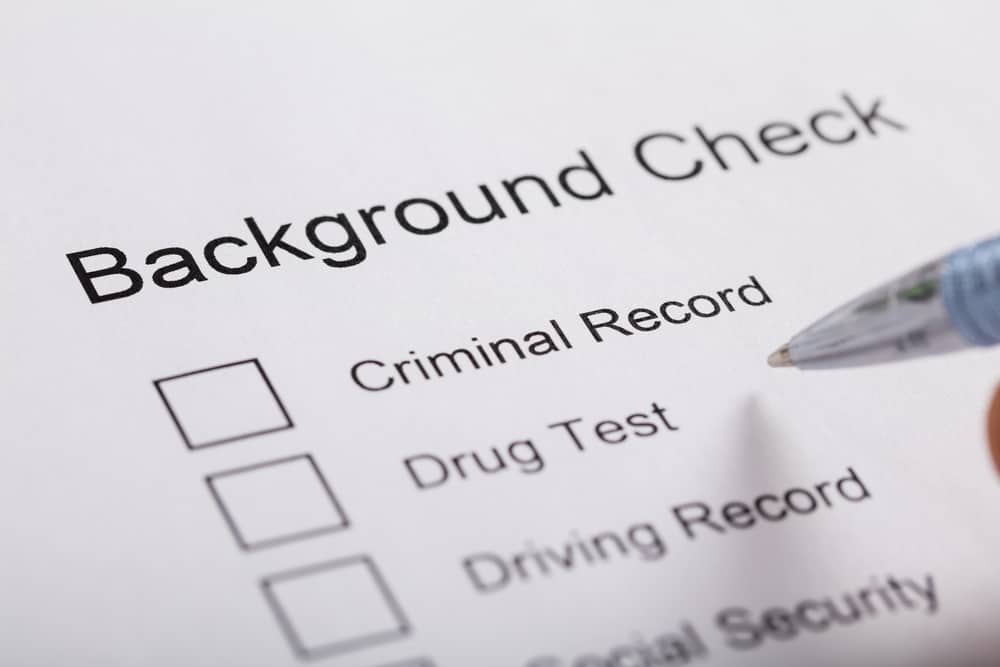The healthcare industry cares for the health, safety, and privacy of its patients. So, healthcare companies have to make sure that their employees protect those patients. If not, companies can be held accountable even when employees’ actions violate company policy. For example, Walgreens was fined $1.44 million when a pharmacist inappropriately accessed a patient’s file. Although the pharmacist’s actions violated company policy, the court still held Walgreens responsible. Because healthcare companies are being held accountable for their employees’ actions, it’s crucial you start by hiring the best employees. How can healthcare employers find dependable, low-risk employees and avoid lawsuits?
Background checks ensure that the candidate you hire has a clean history and all the right qualifications for the job. Using the proper background checks can help you protect your patients and your business.
In this article, we’ll consider two questions about background checks.
- Why are background checks essential in the healthcare field?
- What background checks are best for the healthcare industry?
Why the Healthcare Industry Needs Background Checks
As in Walgreens’ case, employee mistakes can hurt your company’s bottom line. In 2017, businesses spent almost $3.9 billion in medical malpractice payouts, and the cost of malpractice lawsuits is going up. Running a background check on new hires can help you avoid candidates with a history of malpractice or other serious mistakes. Malpractice isn’t the only problem. Employees can cause harm by talking about patients within earshot of other patients. One state attorney general’s office had to pay a monetary settlement when two hospital employees discussed the HIV/AIDS status of patients in a public area. A background check can ensure that all aspects of a potential hire’s record are exemplary. Healthcare workers can also harm patients by abusing their role as caretaker. Positions with access to children and vulnerable adults could attract people with bad intentions. Hiring the wrong person would put these vulnerable patients at risk. Running background checks focused on safety can protect them.
Background checks are essential to protect your patients and your business. But, which background checks are best for the healthcare industry?


What Background Checks Are Needed for the Healthcare Industry
Numerous background checks exist to address the specific concerns of healthcare. Here is a list of the most important background checks related to healthcare:
Identity verification check: An identity check ensures the job applicant did not lie about who they are. It also makes sure that all later background checks look into the right person.
Criminal records search: A criminal records search looks into any criminal convictions, such as assault or medical malpractice. It finds any conviction that indicates patients would not be safe with this candidate.
Sex offender check: Any candidate who will come in contact with children or vulnerable adults should be free of a history of sexual assault or abuse. This background check will identify any registered sex offenders.
Federal exclusion search: The U.S. government maintains lists of healthcare workers barred from receiving federal funds. This search will identify candidates who would prevent your business from participating in federally-funded programs, such as Medicare.
Employee drug screening: Because healthcare workers have easy access to prescription drugs, it’s imperative that employers know if a candidate has had any issues with drug use in the past.
In addition, healthcare workers need to have a clear head so that they can make important decisions regarding the welfare of patients. A drug screening can reveal any drug use that would disqualify a job applicant from healthcare.
Professional license verification: Many healthcare jobs require a license for legal reasons. A license verification check confirms that the job applicant has the right license. It also identifies any restrictions on their license.
Education verification: The majority of jobs in the healthcare field require a postsecondary degree or some technical training.
Education verification ensures that the job applicant has the specific degree or training they need.
Employment verification: Employment verification ensures that potential healthcare workers have the experience you require. It also shows if they were fired from their previous job because of a serious mistake they made.







